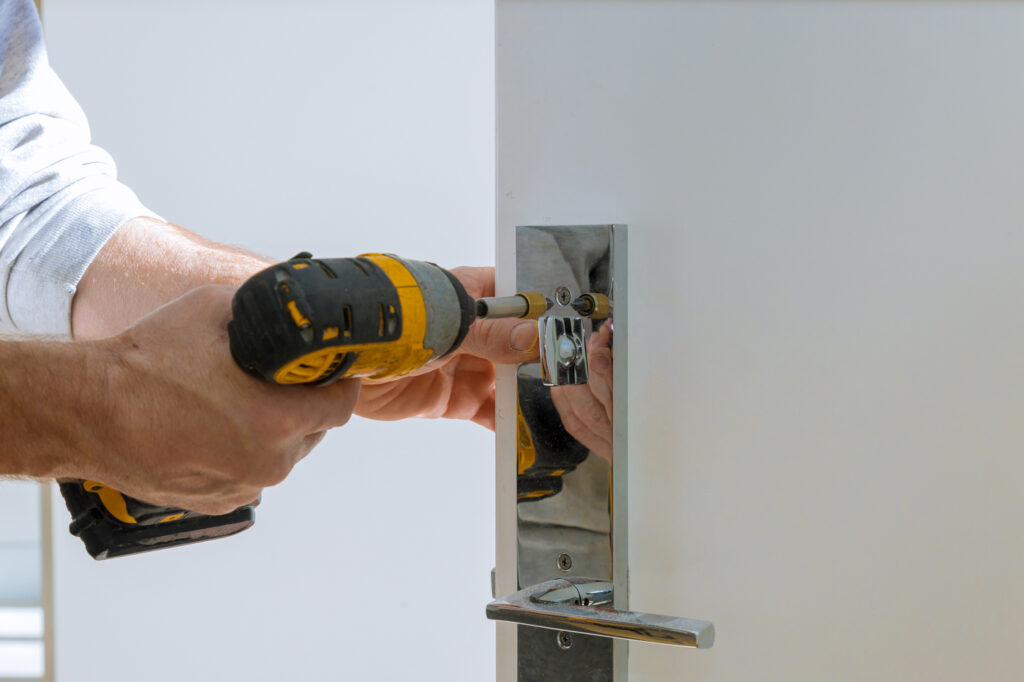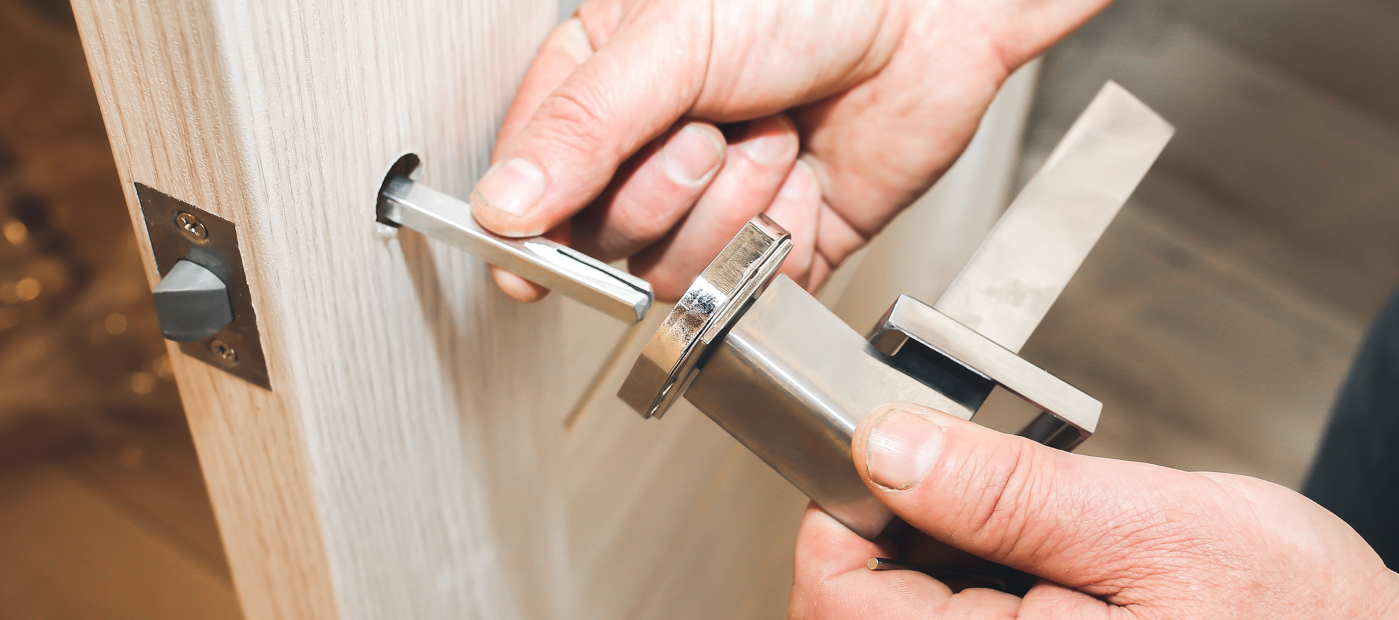The world of lock technology has transformed dramatically in recent years. From traditional keys to biometric and smart locks, this article explores the evolution of modern locks and how digital innovation is reshaping home security across Canada.
The History and Evolution of Lock Technology
Locks have been around for thousands of years, originally developed to provide basic protection for physical property. Over time, lock technology has grown more advanced, adding layers of complexity, convenience, and electronic security. Today, Canadian homeowners have more options than ever when it comes to securing their homes, thanks to the rapid advancement of lock innovation.
From Ancient Locks to Mechanical Mastery
The earliest locks date back to ancient Egypt and Mesopotamia. These wooden devices operated with pins and tumblers, laying the groundwork for mechanical locks. Over the centuries, the design evolved into metal versions, and by the 18th and 19th centuries, the lock and key systems we recognize today were in common use across Europe and North America.
Industrial Advancements in the 19th Century
With the Industrial Revolution, lock manufacturers began producing more sophisticated mechanisms. Innovations like the Yale pin tumbler lock, patented in the 1860s, brought a significant leap in home and business security. These mechanical locks became standard across Canadian homes by the 20th century.
The Shift Towards Electronic Lock Technology
In the late 20th century, electronic security systems began to replace traditional locks in commercial settings. Over time, these technologies became more affordable and accessible for residential use. The emergence of keyless systems, digital locks, and biometric locks has created a new era of security that blends convenience with robust protection.
Modern Locks: Understanding Today’s Digital Security Options
Today’s homeowners can choose from a wide variety of modern locks, each offering unique features and benefits. From smart locks to systems that work with your smartphone, the options can be overwhelming. Let’s take a closer look at the most popular types of lock technology available in Canada today.
Smart Locks
Smart locks are revolutionizing the way Canadians secure their homes. These devices allow you to control access through your smartphone, Wi-Fi, or Bluetooth. Many models also integrate with smart home systems like Google Home or Amazon Alexa.
Benefits of Smart Locks for Canadian Homeowners
- Remote access control – lock and unlock doors from anywhere
- Temporary access codes for guests or contractors
- Activity logs to track who enters and exits
- Integration with home automation systems for added convenience
In colder provinces like Alberta and Manitoba, smart locks with weather-resistant features are especially helpful. Look for models with high IP ratings and battery efficiency to withstand harsh Canadian winters.
Keyless Entry Systems
Keyless systems remove the need for traditional metal keys. Instead, they use codes, cards, or mobile apps to grant access. These systems are ideal for busy households, shared accommodations, or Airbnb rentals.
Keyless entry reduces the risk of lost or copied keys. For homeowners concerned about security, this is a clear upgrade from old-fashioned locks. Some keyless locks even offer dual authentication—requiring both a PIN and a mobile device—for added security.
Biometric Locks
Biometric locks use fingerprint or facial recognition to grant access. This cutting-edge security technology ensures that only pre-approved users can open the door. While more common in commercial settings, biometric locks are quickly gaining popularity in high-end residential homes across Canada.
Advantages of Biometric Lock Systems
- Highly secure – difficult to bypass or duplicate
- Convenient – no need for keys or remembering codes
- Customizable – manage multiple users with unique access rights
These locks are ideal for families, especially those with children or elderly members who may misplace keys. Just a quick scan of a finger or face and the door is unlocked—no fumbling required.
Electronic Deadbolts and Hybrid Systems
Not every Canadian homeowner wants to go fully digital. That’s where hybrid locks come in. These systems combine traditional key access with digital features such as keypads or app controls. Electronic security doesn’t mean giving up the familiarity of a key—it just adds more layers of protection and flexibility.
For those living in older homes or heritage properties, electronic deadbolts can be installed with minimal changes to the door frame, making them an excellent upgrade without compromising the building’s character.
How Lock Advancement Impacts Canadian Homeowners
As lock advancement continues, homeowners are seeing more benefits than ever. Whether you’re looking to enhance your property’s security, add convenience, or keep up with the latest tech trends, modern locks offer practical solutions tailored to today’s needs.
Improved Security for Families
Home security is a top priority for families across Canada. Modern security technology ensures that your home is protected from break-ins and unauthorized access. Many smart locks send instant alerts to your phone if someone attempts to tamper with them, giving you peace of mind whether you’re at work or on vacation.
Convenience and Control
Gone are the days of hiding spare keys under the doormat. With smart locks and keyless systems, you can grant or revoke access from your smartphone. This flexibility is perfect for busy households where multiple people come and go at different times.
For instance, if your child forgets their key after school, you can unlock the door remotely. Or if you’re away for the weekend, you can provide a temporary access code for your neighbour to water your plants.
Cost Savings and Efficiency
While the upfront cost of digital locks may be higher, they can save you money in the long run. No more locksmith visits to rekey a lock or replace lost keys. Many smart systems also integrate with energy-efficient home setups, allowing you to monitor usage and control lights or thermostats from the same app.
For professional locksmith services, Fortify Services offers expert advice and installation of all types of modern locks, tailored to your home’s unique needs.
Factors to Consider Before Upgrading to Digital Locks
Before you rush out to replace your existing locks, there are a few key factors to consider. Not every home or homeowner needs the same type of digital locks or smart locks. Here’s what you should think about before making the switch.
Compatibility with Your Doors
Some smart locks only work with specific door types or thicknesses. It’s important to check the manufacturer’s specifications or consult a professional to ensure compatibility.
If you need expert locksmith advice, Fortify Services can assess your doors and recommend the best options for your home.
Power Source and Battery Life
Most modern locks operate on batteries. Be sure to choose models with long battery life and low-battery alerts. In areas with frequent power outages, battery-operated or hybrid locks are a safer choice than those relying solely on Wi-Fi or electricity.
Integration with Existing Smart Home Systems
If you already use a smart home system, make sure your new lock integrates seamlessly. Many locks are compatible with platforms like Apple HomeKit, Google Assistant, or Samsung SmartThings. This allows you to control all your devices from a single app, adding to the convenience.
Security Features and Encryption
Always look for locks with strong encryption protocols and secure access methods. Choose models from reputable brands that offer firmware updates and customer support. Some Canadian homeowners may also want to prioritize locks that meet CSA (Canadian Standards Association) or ULC (Underwriters Laboratories of Canada) standards for added peace of mind.
Access Management for Multiple Users
Whether it’s family members, roommates, or house cleaners, being able to customize access is crucial. Look for locks that allow you to add and remove users easily, set time-limited access, and receive notifications when doors are opened or closed.
Contact our certified technicians to learn more about which digital lock features are best for your household.
The Role of Locksmiths in the Age of Smart Security
While DIY installation is possible for some smart locks, many Canadians still rely on professional locksmiths to ensure proper setup, compatibility, and security. The role of locksmiths is evolving alongside the future locks they install, moving from traditional key cutting to full-service digital security solutions.
Why Professional Installation Matters
Improper installation can lead to lock failure or vulnerabilities. A certified locksmith ensures that your lock is properly aligned, secured, and functioning as intended. They can also provide advice on integrating your new system with your existing home layout and technology.
Maintenance and Troubleshooting
Over time, even the best locks need maintenance. Whether it’s replacing worn components, updating firmware, or diagnosing connectivity issues, a trusted locksmith offers ongoing support to keep your system running smoothly.
Upgrading Legacy Systems
If your home has older locks or a mechanical security system, a locksmith can help you gradually upgrade to digital solutions without tearing everything out at once. This step-by-step approach is ideal for homeowners who want to balance budget, convenience, and security.
In regions with specific building codes—like Quebec or British Columbia—a knowledgeable locksmith will ensure your new system complies with local regulations.
Emerging Trends in Lock Innovation and Security Technology
As digital infrastructure becomes more embedded in our everyday lives, the demand for smarter, safer, and more intuitive lock innovation has never been higher. The Canadian market is seeing a rise in new technologies, materials, and designs that cater to both urban and rural homeowners. These emerging trends are shaping the future of how we protect our homes and loved ones.
Voice-Activated and AI-Integrated Locks
Voice control is no longer just a novelty—it’s becoming a standard feature in many smart homes. Smart locks that work with voice assistants like Amazon Alexa, Google Assistant, and Apple Siri allow hands-free access and control. Homeowners can simply say, “Lock the front door,” and the system responds instantly.
Some advanced systems now include artificial intelligence (AI) that learns your routines and automatically adjusts settings. For example, if you tend to lock the door every night at 10 p.m., your system might start doing it for you. This level of automation brings a new layer of convenience and safety to Canadian households.
Geofencing and Proximity-Based Entry
Modern locks are getting smarter with the integration of geofencing technology. This allows your lock to detect when your smartphone is within a certain distance and automatically unlock or lock the door. It’s perfect for those moments when you’re juggling groceries or have your hands full with the kids.
In larger Canadian cities like Toronto and Vancouver, where apartment living is common, proximity-based locks are a convenient solution for high-traffic households. They reduce the need for constant interaction with the lock and can even prevent accidental lockouts.
Cloud-Based Lock Management
Cloud technology is also playing a major role in electronic security. With cloud-based management platforms, homeowners can store access data securely off-site. This includes usage logs, access schedules, and biometric data. If your lock is ever compromised, the data remains protected.
This is especially beneficial for Canadians who travel frequently or manage multiple properties. With cloud access, you can control and monitor all your locks from a single dashboard, anywhere in the world.
Eco-Friendly and Sustainable Lock Designs
As sustainability becomes a greater concern, some manufacturers are developing locks with eco-friendly materials and energy-efficient components. Solar-powered batteries, recyclable casings, and energy-saving sleep modes are just some of the features being introduced.
Homeowners in off-grid or rural areas of Canada, such as parts of the Yukon or Northern Ontario, may find solar-assisted locks particularly useful. These innovations ensure security without relying heavily on traditional power sources.
Challenges and Limitations of Future Locks
While the benefits of future locks are clear, it’s important to understand the potential limitations and challenges that come with digital systems. Like any technology, smart locks and keyless systems require proper setup, maintenance, and user education.
Cybersecurity Risks
One of the most talked-about concerns with digital and smart locks is the risk of hacking. Poorly secured systems or outdated firmware can become a vulnerability. That’s why it’s crucial to choose locks with strong encryption and regular software updates.
To stay safe, opt for locks from trusted brands with a history of secure product development. Enable two-factor authentication when available, and keep your apps and firmware up to date. If you’re unsure, our certified technicians at Fortify Services can help you assess your current security setup.
Dependence on Power and Connectivity
Many digital locks rely on Wi-Fi, Bluetooth, or batteries. If your internet goes down or your batteries die, you may find yourself locked out. This is why hybrid models—those that combine digital and mechanical mechanisms—are often recommended for Canadian homes, especially in areas with unstable power grids or extreme weather.
Look for locks with emergency backup keys or battery ports, and always keep a spare battery or key accessible in case of emergency.
Learning Curve for New Users
Not everyone is tech-savvy, and some homeowners may find the shift to smart locks overwhelming. Setting up user profiles, integrating with home systems, and managing access may require time and patience. However, most manufacturers offer user-friendly apps and detailed guides to simplify the process.
For older adults or those unfamiliar with technology, professional installation and a quick tutorial can go a long way. If you need expert locksmith help, Fortify Services is always ready to get you started with confidence.
Real-World Applications of Modern Lock Technology in Canada
The transition to digital and keyless systems isn’t just a trend—it’s a practical shift that’s already improving lives across the country. Let’s explore how Canadians are using modern locks to enhance their daily routines and increase peace of mind.
Urban Condos and Apartment Living
In major metro areas like Montreal or Calgary, where high-rise living is common, smart locks are replacing traditional intercoms and key cards. Residents can buzz in guests remotely, track deliveries, and avoid lost keys altogether.
Property managers also benefit from this shift. Digital locks allow for centralized access management, reducing the need for constant rekeying when tenants move out. It’s a cost-effective solution that also enhances building security.
Suburban Family Homes
In suburban communities across Canada, families are embracing smart locks for convenience and safety. Parents can monitor when kids arrive home from school, while also granting access to babysitters, cleaners, or grandparents—without ever having to cut an extra key.
With features like geofencing and scheduled access, these locks offer a tailored experience that fits busy family life. Some models even include built-in cameras or video doorbells, providing a full security suite in one compact device.
Vacation Homes and Airbnb Rentals
Canadians who own cottages, cabins, or rental properties are increasingly relying on biometric locks and smart entry systems. These allow them to manage guest access remotely, change codes between bookings, and monitor activity even from hundreds of kilometres away.
This is particularly useful in provinces like British Columbia or Nova Scotia, where vacation homes are often located in remote or seasonal communities. Remote locking means fewer trips to the property and more peace of mind.
Rural and Off-Grid Properties
In rural parts of Canada, where internet connections may be limited, homeowners are turning to hybrid locks that combine mechanical keys with digital access. These systems offer flexibility and reliability, even when connectivity is unreliable.
Solar-powered locks or models with low-energy Bluetooth are ideal for off-grid living. They provide the benefits of electronic security without needing a constant power source.
Choosing the Right Lock for Your Canadian Home
With so many options on the market, finding the best lock for your home can feel overwhelming. But by focusing on your specific needs and lifestyle, you can narrow it down to the most suitable solution. Here are some expert tips for choosing the right lock technology for your Canadian property.
Assess Your Security Priorities
Are you more concerned about preventing break-ins, managing access, or improving convenience? Each lock type serves a different purpose. Biometric locks offer high-level security, while smart locks are ideal for flexibility and remote management.
Consider Your Household Size and Habits
Larger families or homes with frequent visitors may benefit from systems that allow multiple users and access schedules. Choose locks that support custom PIN codes, fingerprint profiles, or mobile app access for everyone in the household.
Think About Weather and Location
In provinces with extreme weather—like Saskatchewan winters or humid Ontario summers—choose locks with weather-resistant ratings and reliable battery performance. Stainless steel or zinc alloy casings often offer better durability in harsh environments.
Review Integration and Compatibility
If you’re already using a smart home hub or security system, make sure your new lock integrates smoothly. Compatibility with Apple HomeKit, Google Home, or Amazon Alexa can streamline your setup and unify your devices under one ecosystem.
Budget Wisely Without Compromising Security
While high-end locks offer premium features, there are also reliable options for every budget. Start with a hybrid model or keypad lock if you’re new to digital security, and upgrade gradually as your confidence and needs grow.
For professional locksmith services, Fortify Services provides in-home consultations and installations to help you choose the right system, no matter your budget or home type.
Conclusion: Embracing the Future of Locks in Canada
The evolution of lock technology in the digital age has opened up a world of possibilities for Canadian homeowners. From the ancient wooden locks of Mesopotamia to today’s cloud-connected, biometric-enabled smart locks, we’ve come a long way. These advancements offer not only better protection but also greater convenience, flexibility, and peace of mind.
Whether you live in a bustling downtown condo, a quiet suburban street, or a remote countryside cottage, there’s a modern lock solution that fits your lifestyle. By staying informed and choosing the right systems, you can take full advantage of the latest lock innovation while keeping your home and family safe.
If you’re ready to make the switch—or simply want expert advice tailored to your needs—Fortify Services is here to help. Our team of certified professionals offers full-service support, from selecting the right security technology to installing and maintaining your system for years to come.
Contact our certified technicians today and discover how modern lock advancement can fortify your home for the future.









